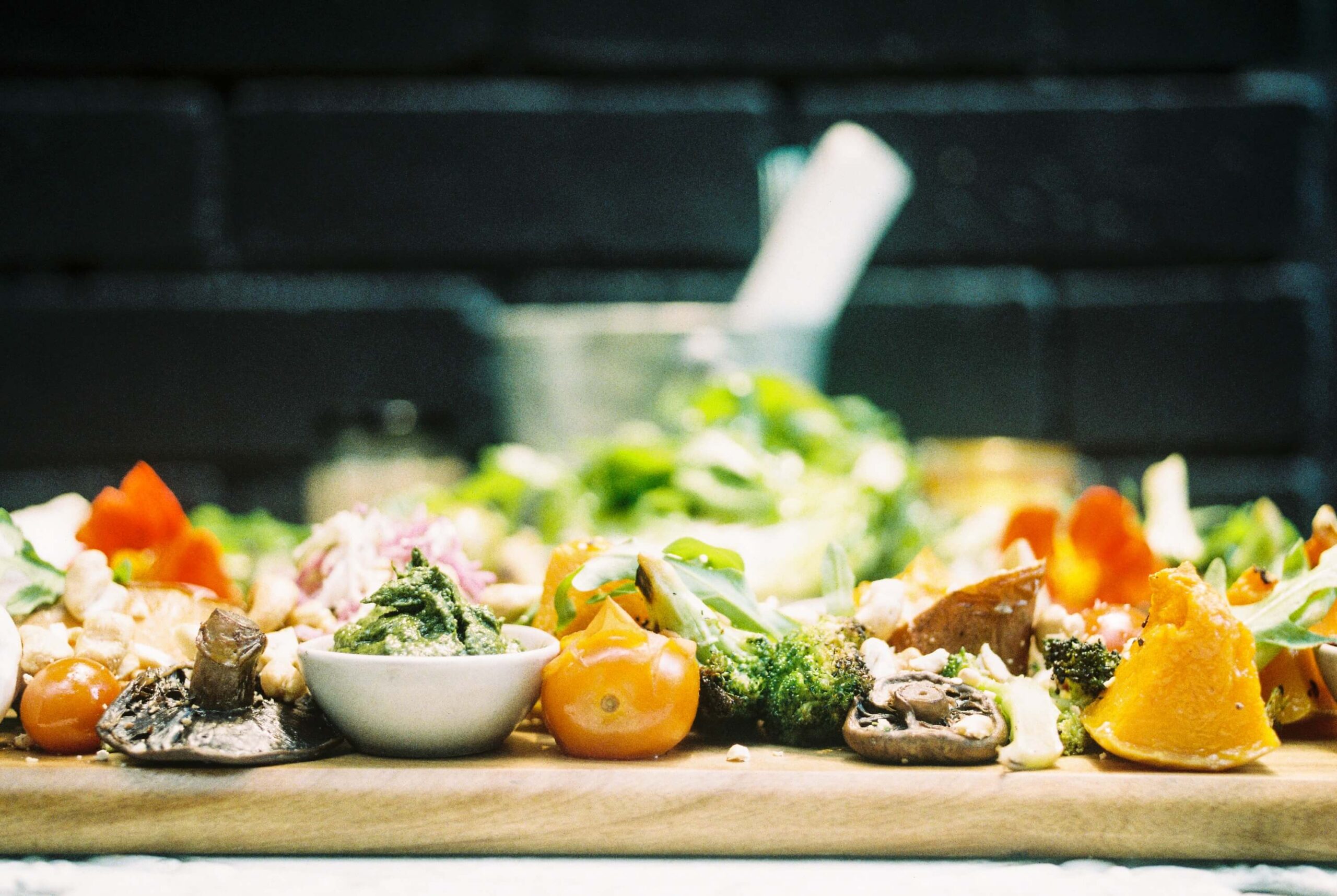It’s estimated that food waste accounts for between about 8% to 10% of global greenhouse gas emissions. Such figures indicate that it’s not just packaging that poses an issue, rather the disposing of consumables which are crippling our climate. With numerous apps looking to solve the increasing issue of unused foods, we took a closer look at one that fits into the tech for good category.
FoodCloud is one of many platforms looking to solve the issue of food waste for the greater good. A food distribution platform that connects retailers with charities, it helps eliminate the numbers of surplus items going to waste by giving them to those in need. Available in Ireland, the UK, Slovakia and Czech Republic, the savvy app claims to have redistributed over 60 tonnes of food per week since its inception in 2012. The company started out as a college project among two friends back in 2012. A tasty concept for all concerned, FoodCloud is the brainchild of Irish entrepreneurs Iseult Ward and Aoibheann O’Brien, both of whom are on a mission to educate consumers across Europe on how to reuse and redistribute edibles for the greater good.
Using tech to giveback whilst promoting sustainability is becoming a trend among retailers as they battle to cut down on wastage. According to figures from Non Profit Source, 31% of people who donate money, food and clothes worldwide give to NGOs, NPOs & charities located outside of their country of residence.
In addition to this, research from Safe Food Advocacy Europe shows that, in the EU alone around 88 million tonnes of food are wasted every year to a value of 143 billion euros. More shocking perhaps, is that when it comes to that waste it has been revealed that 11 million tonnes come from food service whilst 5 million tonnes belong to wholesale and retail. From reusable food recipes for beef koftas to spice rostis and advice on how to reuse potato peels, we spoke to Christopher Hill, Operations Director at FoodCloud about using technology to help battle climate change whilst helping those most in need.
So Christopher, can you tell me a little bit about the overall ambition for FoodCloud?
FoodCloud’s aim is to make surplus food redistribution to charity the norm in Ireland and beyond. FoodCloud operates in Ireland and the UK, however, internationally, our technology is also being used in Slovakia and Czech Republic, and we are expanding quickly. We now redistribute over 60 tonnes of food per week in the Central Europe region, having started 2021 in a handful of stores. In the UK, FoodCloud works in partnership with food redistribution NGO FareShare, to connect over 2,900 stores directly with over 7,000 local charities across the country, redistributing over 250 tonnes through technology each week.
Food redistribution provides an opportunity to reduce food waste and tackle food insecurity, whilst also raising awareness about the problem of food waste across governments and the food industry. The pandemic has raised the profile of food banks and food recovery organisations in providing essential social safety nets for mitigating food poverty and food insecurity around the world whilst reducing the environmental impact of the surplus food arising from supply chain disruptions. Yet, I believe there is a lot more work to do.

Where did the concept for FoodCloud come from?
It all began when Co-founder and CEO Iseult Ward was a third-year Business and Economics student at Trinity. There she met FoodCloud Co-founder, Aoibheann O’Brien who was a post-graduate student completing a master’s degree in Environmental Science. Iseult and Aoibheann both shared a mutual love of food and a distaste for food waste. Aoibheann had been involved in many grassroots organisations in the UK that were redistributing food and noticed that this wasn’t happening in Ireland. She then brought the concept to an Enactus event, as the idea was commercially viable and would have a hugely positive social and environmental impact in Ireland. Hence FoodCloud was born.
What have been foodCloud’s biggest challenges to date in developing the platform?
When FoodCloud first started, donating surplus food to charities wasn’t common practice in Ireland, so there was a lot to learn about what works and what doesn’t! FoodCloud relied on the first businesses and charities that signed up to give honest feedback and work closely with us while we developed and perfected the model. Seeing the positive impact FoodCloud could have even on such a small scale is what inspired Iseult and Aoibheann to do more.
Which types of food waste benefit most from the platform?
FoodCloud has two solutions to tackle the enormous issue of food waste, they are through our three warehouses that redistribute large quantities of surplus food from the supply chain to our network of community groups all over Ireland and through our technology platform. This connects over 500 supermarkets with surplus or excess food directly to local community groups. Called ‘foodiverse’ it supports food businesses to redistribute to charities and community partners at scale. It also provides the outlet for all potential waste stock that is safe for human consumption.
This is particularly important for shortcode life fresh stock items such as dairy, meat and poultry, produce and bakery items. No matter how well-developed forecasting and stock management is in a retailer, there will always be surplus that isn’t sold in store given changes in demand and the complexities of managing multiple shortcode lives. There is only a small window to donate this stock as it reaches the last day of code life and has to get to a charity so they can store and or use it safely.
Can you tell me more about the technology behind FoodCloud and how it works for businesses?
Utilizing technology allows businesses to integrate redistribution into complex and time-dependent daily routines in store. We’ve designed a repeatable, simple process that can be quickly scaled across hundreds of stores and adapted to manage variation in processes across different retailers and markets. In addition, process reporting and social and environmental reporting allow retailers and charity partners to manage day to day.
Charities and community groups that can collect a mix and volume of food are linked to a retail location and they receive an offer via text or app notification to collect the food that day or the following morning. If they can’t collect, the platform will offer the stock to other charities in the local area to ensure we do all we can to rescue the food. Technology provides the speed and the consistency of routine for all involved, and importantly, the traceability and reporting on all products. This provides food safety security for all and provides an industry standard for environmental and social impact reporting.
In addition to our service that links charities and food businesses, we also redistribute large volumes of surplus from the supply chain through our three warehouses in Ireland. Our Hubs in Cork, Dubin and Galway redistribute surplus from producers, manufacturers and distribution facilities across Ireland.

How can charities sign up?
In Ireland, we’re always looking to support more charity and community groups with access to great food. This could be through our technology solution linked groups to stores and food businesses in their local area or receiving food through our warehouse solution. If charity or community groups are interested or simply want to learn more, please visit our website and fill out our Charity Registration Form. In addition to this, for charity and community groups in Northern Ireland and the UK they can contact our colleagues at FareShare.
What developments in food waste technology do you believe we can expect to see in the next five years?
Globally the food system is responsible for 34% of global Greenhouse Gases (GHG), it is now estimated that 10% of global GHGs are related to food waste (UNFAO). That is 4 times global aviation emissions, which are estimated at 2%.
Given this scale and the pressing need to tackle the climate challenge at a local and global level, I believe technology must play a key role. At FoodCloud, we want to connect a global community of food distributors through our technology increasing the redistribution of great food, reducing food waste and growing social impact. This is building on the work we’ve done to date, through doing more in existing markets and with current partners and supporting new partners internationally.



